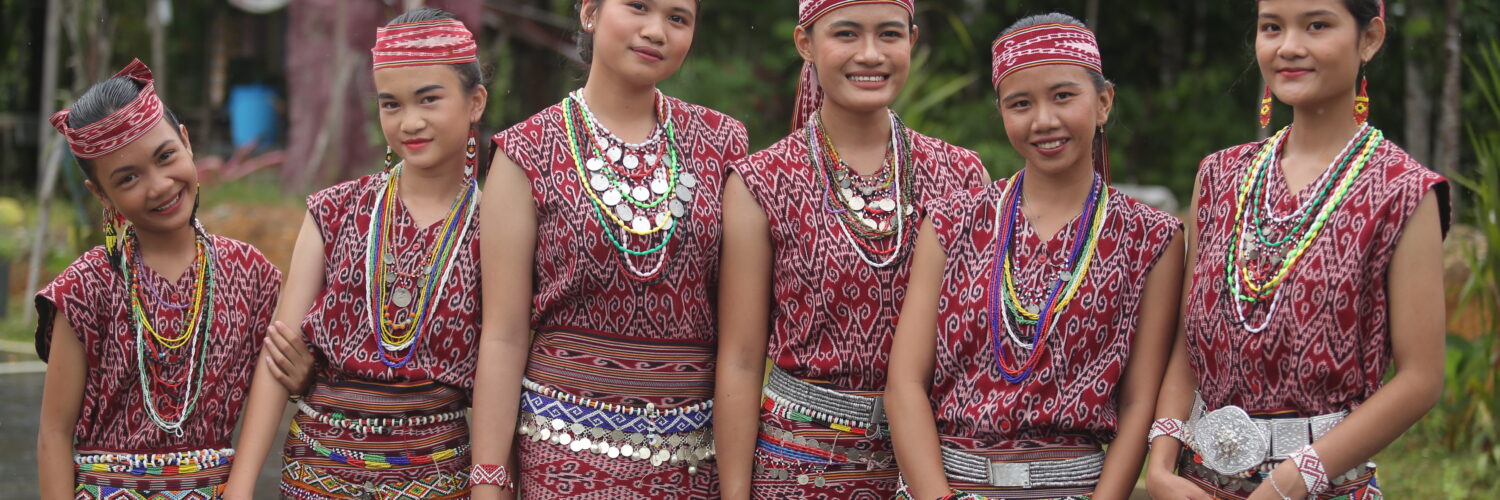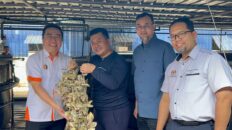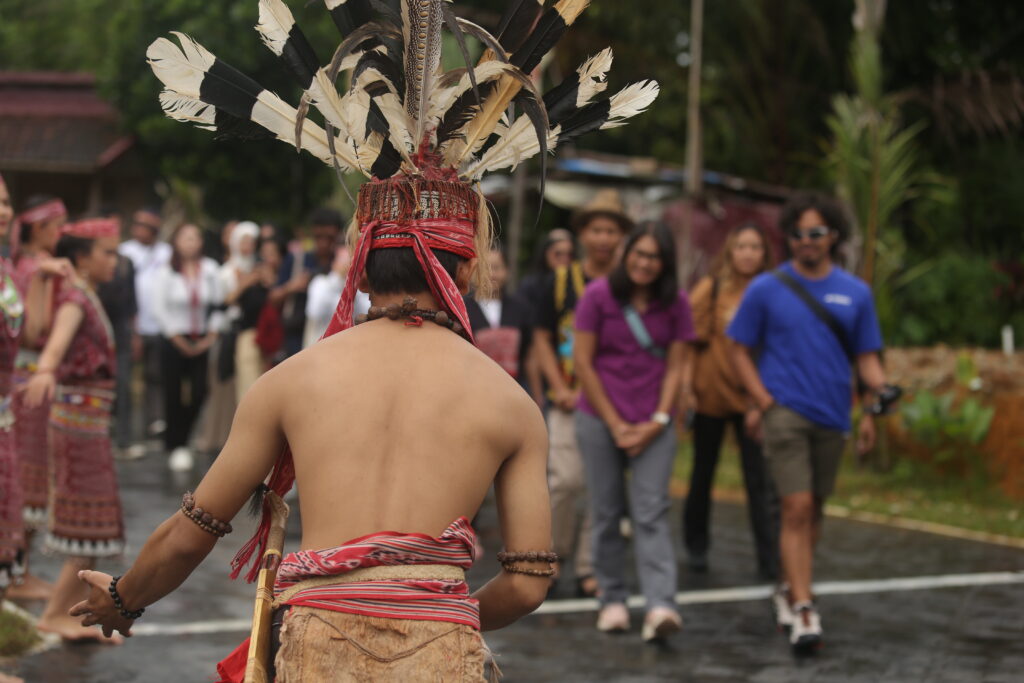
Participants received a traditional Dayak Desa welcome dance at Rumah Betang Ensaid Panjang, marking the start of the ‘ExploNation’ initiative. Led by Lingkar Temu Kabupaten Lestari (LTKL), the programme strengthens the link between cultural preservation and ecotourism in the region. By engaging youth and local communities, ExploNation demonstrates how the Dayak Desa tribe blends heritage and sustainability while boosting tourism growth.
Tourism remains a vital driver of Malaysia’s and the wider region’s economy. For example, the World Travel & Tourism Council (WTTC) projects MYR 198.7 billion in contributions for Malaysia in 2024. However, Southeast Asia faces growing threats from climate change and land conversion. Nearly 30% of its land has already been lost to agriculture, putting more than 5,600 species at risk. Therefore, initiatives like ExploNation highlight the importance of preserving both biodiversity and cultural heritage.
Showcasing Dayak Culture
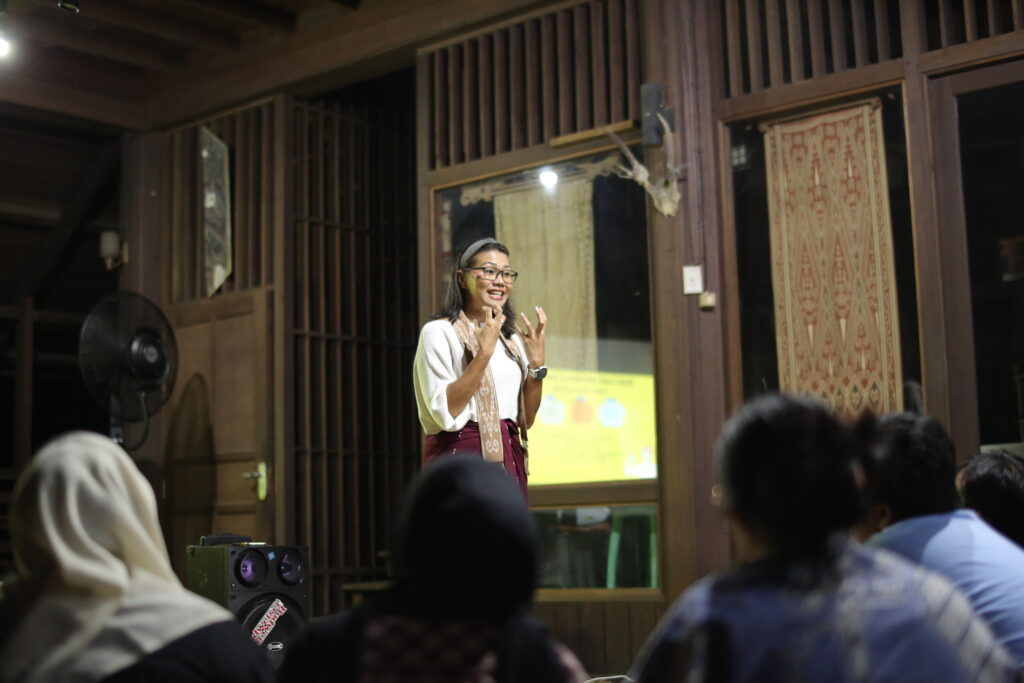
During the programme, participants stayed in Ensaid Panjang Village’s traditional “Rumah Betang” (longhouse). They explored community-managed forests “Rimba Gupung,” practiced the oral storytelling tradition “Tutur Bedudu,” and observed “tenun ikat” weaving with natural dyes.
“The culture of the Desa Dayak tribe is deeply connected to nature. From the temoai dance, a welcoming dance that embodies the philosophy of respect for nature, to the architecture of the Betang Houses, to the natural dye woven motifs inspired by betel leaves or fern shoots in their forests,” said Abex.
To build new skills, Abex also trained local youths in public speaking, while Febrian, a travel blogger, guided them in sharing their cultural narratives more effectively.
Preserving Heritage and the Environment
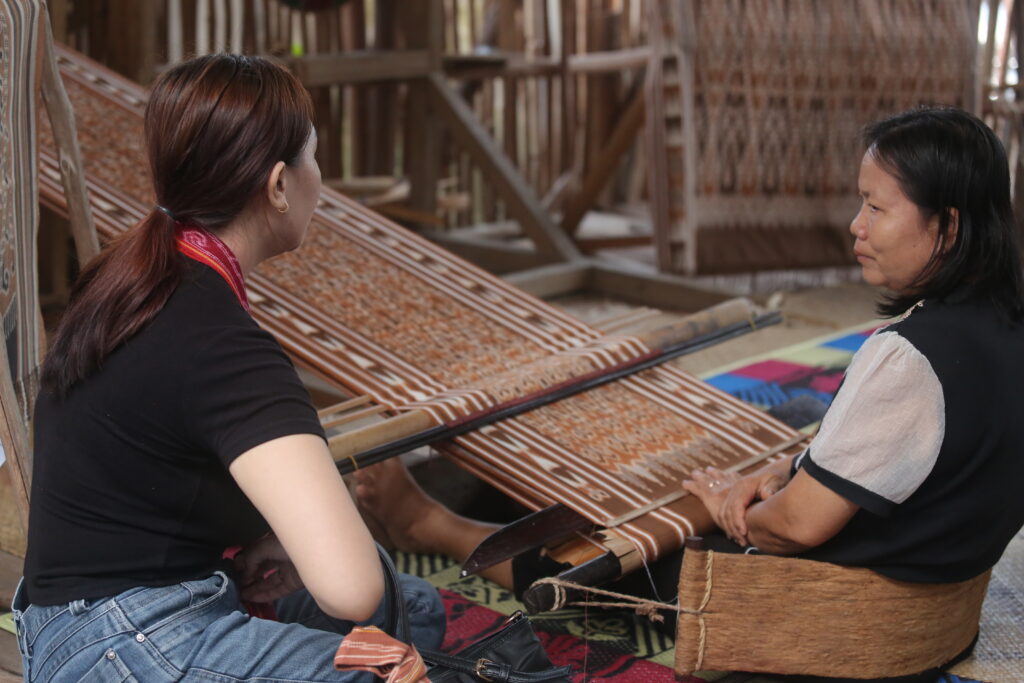
The Dayak community emphasised how the “Rimba Gupung” forests supply food, medicine, clean water, and weaving materials. Communal rules ensure these resources remain protected. In addition, traditions such as “Tutur Bedudu” pass vital ecological wisdom to younger generations, reinforcing the belief that nature is the ‘mother’ of life.
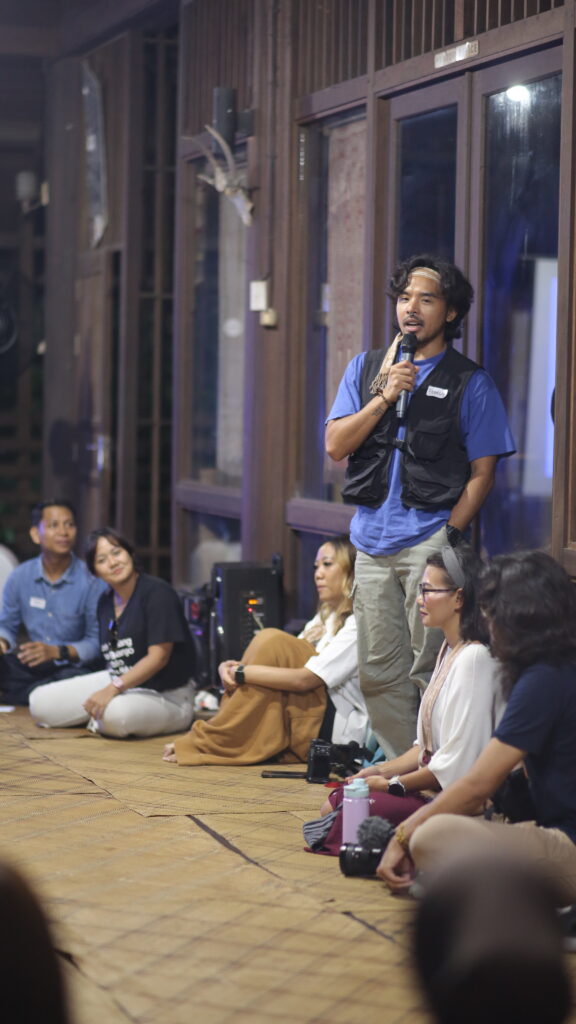
Women artisans showcased Tenun Ikat weaving, which sustains livelihoods and keeps heritage alive. Febrian, a travel blogger, added:
“Given the current situation, environmental restoration is an urgent step. Preserving culture and improving community welfare are essential components of a restorative economy based on Indonesia’s natural and cultural riches.”
Rising Tourism in West Kalimantan
Tourism in West Kalimantan continues to rise. In 2024, the province recorded 8.1 million domestic and 73,000 international tourists, marking a 73.3% increase from the previous year. As global travellers increasingly seek sustainable and authentic experiences, initiatives like ExploNation further boost regional appeal.
Government leaders voiced strong support.
“We fully support initiatives like ExploNation as a collaborative platform between young people and content creators to highlight positive stories in Sintang, particularly about how the community protects its environment through ecotourism. This presents an opportunity to develop culture and nature based tourism, in keeping with the local wisdom of the community, which has been preserved for generations,” said H. Sumardi, Head of the Youth Division at the Sintang Regency Youth and Sports Office.
Towards a Shared Future
Participants left the programme with a deeper commitment to sustainability. Abex stressed: “This trip has raised the awareness that ‘There’s No Planet B.’ If our natural environment is destroyed, there will be no place left to stand, as humans absolutely need nature to survive. We can return to nature, utilize its gifts without greed, and begin recovery by teaching the younger generation that nature is both a home and a source of life that must not be lost.”
By linking cultural preservation with environmental protection, ExploNation shows how community-driven initiatives can create a more inclusive and sustainable future for Southeast Asia’s tourism industry.



